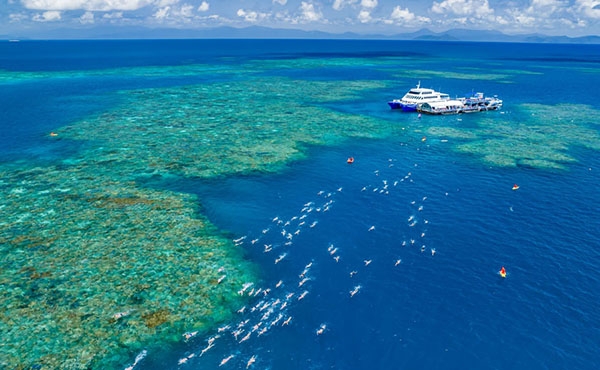Sea Country management and custodianship by Traditional Owners, as practised for thousands of years, are important components of the natural and Indigenous values of the Region. Supportive partnerships between Traditional Owners and management are beneficial to biocultural island conservation and monitoring.1114
Sea Country management by Traditional Owners is important for all Reef values
An example of this type of partnership and the benefits traditional use brings is evident in the management of Woppa (Great Keppel Island). In order to protect a culturally significant site, Woppaburra people worked with the Queensland Government to design and install a boardwalk to restrict foot traffic over the site. This access, combined with interpretive cultural information signs, not only protected the site but also raised community awareness and cultural understanding of Woppaburra people and cultural sites. Woppaburra people also partnered with a local island resident and the Queensland Government to establish Balban Dara Guya (Leekes Creek) Fish Habitat Area at Woppa in 2017. This fish habitat area protects both a significant ecosystem and a significant cultural heritage site for Woppaburra, making it the first of its kind off the Queensland coast.
Traditional use also has benefits to management. Trends in catch per unit effort of traditional hunting by communities could be used as a potential indicator to assess the status of certain species, such as dugongs.1490


